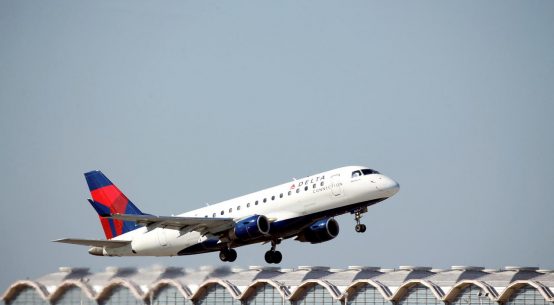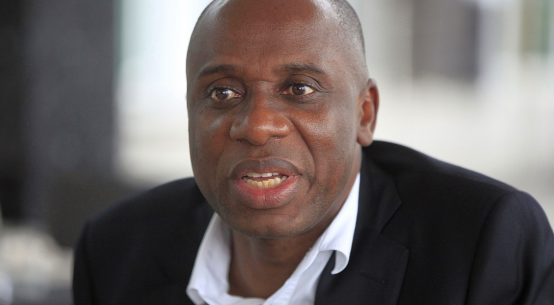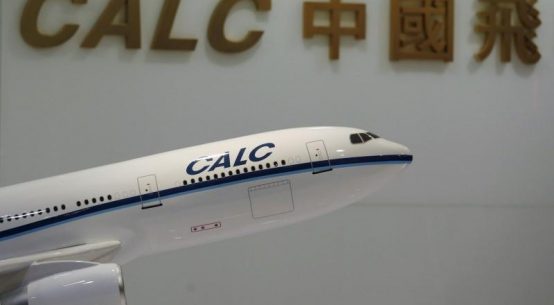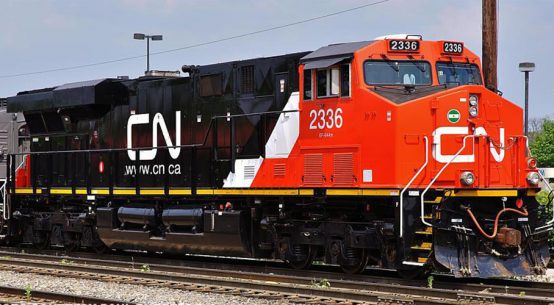
FG to assist airlines, may harmonize 35 multiple charges, TSC
The woes of Nigerian airline operators may soon be over as Acting President, Prof. Yemi Osinbajo has announced that the Federal Government has concluded plans to assist them by addressing challenges that have hampered the growth and development of the sector, and hindered it from taking advantage of its natural geographical position as the hub for Africa.
Osinbajo made this when Airline Operators of Nigeria (AON) met with him and have inundated the Federal Government with a load of requests which they say will ensure the sustenance of airlines.
Among the barrage of requests are the elimination of multiple charges, abolition of Value Added Tax (VAT) for airlines as aviation is the only mode of transport still paying VAT.
The FG assistance is expected to come in reduction or harmonization of over 35 charges levied against airlines, which they described as outrageous and a threat to their business.
Other area of urgent assistance is availability of aviation fuel, otherwise known as Jet A1 which is not only unavailable but also very expensive.
Aviation fuel costs more in Nigeria and other oil producing countries than their counterparts that do not produce oil.
For instance, in Nigeria, despite the stability in the lifting of aviation fuel across the country and the deregulation of the commodity, JET A1 has hit an all-time high of N198 per litre.
AON Chairman, Sir Nogie Meggison, had in his address listed other challenges to include poor navigational and landing aids, high cost and epileptic supply of Jet A1, obsolete infrastructure thereby limiting operations to daylight operations for most airports, and lack of consultation with airlines before introduction of new charges and policies, among others.
Daily Trust reported that the operators specially called for the harmonization of over 35 multiple charges; reviewing five per cent TSC to a flat rate (in line with world practices), saying multiple charges had killed over 25 airlines in 30 years.
Megisson said: “There is an urgent need for a deliberate economic policy that will support the positive growth of aviation and survival of domestic airlines in the country. For instance, following the air crashes of 2005/06, government came up with a policy to ensure air safety. Similarly, the economic policy for the sustenance of the industry needs to be seriously looked into.
“Safety and economic policy go hand-in-hand. Where there is no financial profit for airlines safety would be compromised. A clear economic policy for the survival of domestic airlines is very critical at this time which has resulted over the years in the deaths of over 25 airlines in 30 years.
Safety and Financial Economic Policy must go hand-in-hand; as airline investors are in the business of aviation for the profit and cannot make profit without safety or have a safe airline without profit.”
Osinbajo reportedly promised to address the many challenges facing the aviation industry in Nigeria which had hitherto hampered the growth and development of the sector and hindered it from taking advantage of its natural geographical position as the hub for Africa.
The sky rocketing price of JETA1 in Nigeria has added more to the pains of airlines, which use 30 per cent of their revenues for fueling their aircraft.
While the specialized fuel is sold for about $2.30 cents per gallon in Nigeria, $2.30 in Benin and $1.94 cents per gallon in Cameroon, it is sold for close to $3.14 cents in Ghana, which also produces oil. In Luanda, Angola (also an oil producing country), it costs $3.75 per gallon; Libreville $2.05 per gallon; Khartoum, Sudan $2.44 per gallon.
It is only Equatorial Guinea that sells JET A1 for $0.46. Jet fuel prices in some African capitals are double the global average and it is posing a threat to its aviation sector development.









